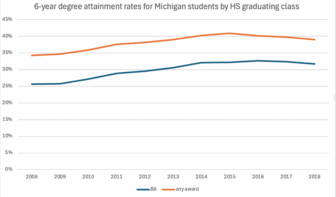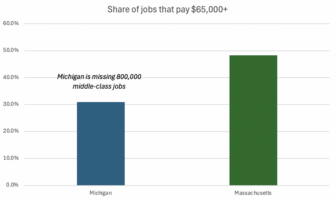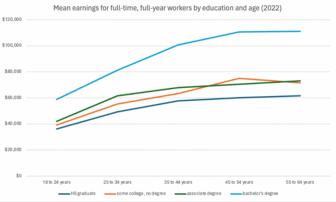Published in 1998 while the Michigan economy was booming, this report addressed the paradoxical issue of connecting the urban poor to work. As we found, even though Michigan had record low unemployment, had income rising for the first time in two decades, and saw employers facing challenges in finding qualified people in the so-called “War for Talent”, we did not see economic opportunities trickle down to the urban poor. In fact, during this climate of economic vibrance, unemployment remained notably high in urban Michigan.
Connecting Urban Poor To Work: A Framework and Strategy for Action was designed to develop workable policies that lead to economic self-sufficiency for urban poor through helping urban adults find work. The study finds that just because the economy is providing increasing opportunities it does not mean the urban poor are able to connect to them. The path to economic self-sufficiency is through the regional (rather than local) labor market and having the skills to compete for jobs at the regional level. A key barrier to acquisition of skills are the effects of concentrated poverty. The recommended policy interventions include deconcentrating poverty, enhancing early childhood development, transforming urban K-12, reducing economic segregation in housing and schooling, and investing in training for the chronically unemployed. In addition, the research in this report is forming the basis for Michigan Future Inc’s work in improving schools.
Please read the Full Report for a complete look at our research and recommendations.






